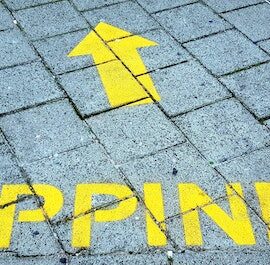

This article gives you a glimpse of what you can learn with Shortform. Shortform has the world’s best guides to 1000+ nonfiction books, plus other resources to help you accelerate your learning.
Want to learn faster and get smarter? Sign up for a free trial here .
Has your life fallen out of balance? Does your work-at-home job have you sitting at a desk all day, snacking in the kitchen, and working late? Do you feel like you’ve lost your spark in life?
In today’s world more than ever, people’s lives are falling out of balance. The COVID-19 pandemic has blurred the line between personal and professional lives, disrupted sleep patterns, increased depression rates, and caused many to gain weight. But it doesn’t have to be that way.
Here is how you can start working towards a more balanced lifestyle, one step at a time.
Work-Life Balance
When you think of a balanced lifestyle, work-life balance is probably the first thing that comes to mind. By setting up your professional life to make space for balance in your personal life, it will be easier for critical things—like physical and mental health—to follow.
The Dangers of Workaholism
One of the signs of an unbalanced lifestyle is workaholism. Robin Sharma’s fable The Monk Who Sold His Ferrari shows a perfect example of the dangers of your work-life balance falling apart. In the book, the main character Julian’s life at the beginning of this story is what many people dream of having for themselves. By working hard, he’s become rich and well-known in his profession. He has every material possession that most of us could ever want. In other words, by any typical measure, Julian Mantle is “successful.”
However, as you soon see, his workaholic life isn’t something that people should aspire to. Julian finds himself feeling unfulfilled in his personal life and exhausted due to overwork. Among other messages, Sharma is trying to teach readers that to be successful in life doesn’t have to mean that you devote your life to your work and to making money.
The American Psychological Association (APA)’s research backs up Sharma’s message. They report that workaholism has negative impacts on physical and mental health—largely due to stress—as well as negative impacts on the workaholic’s relationships.
Are you wondering whether you might be a workaholic? Psychotherapist Ana Jovanovic offers 5 warning signs of workaholism, and some first steps you can take to adjust your relationship with your work.
How to Achieve a Work-Life Balance
In his book Eat That Frog!, self-development author Brian Tracy says that to achieve a work-life balance, you must determine the three things you do at work that account for the majority of the value you contribute. Focus each day on completing the most important things at work, so you have time to do what brings you happiness and satisfaction in your personal life. Your goal should be to do your best at work while not losing sight of the reasons you’re working: to have strong relationships and a satisfying life.
Finding Meaningful Work
In addition to avoiding burnout and workaholism, in The Power of Vulnerability, Brené Brown discusses finding meaningful work outside of your job.
TITLE: The Power Of Vulnerability
AUTHOR: Brené Brown
TIME: 28
READS: 77.6
IMG_URL: https://www.shortform.com/blog/wp-content/uploads/2021/05/the-power-of-vulnerability-cover.png
BOOK_SUMMARYURL: the-power-of-vulnerability-summary-brené-brown
AMZN_ID: XYZ
Meaningful work is any work that you’re passionate about. While some people have the privilege of making money doing the thing they love, most people have to find this work outside of their careers. This could be through volunteering, finding a hobby, or joining local organizations. For example, if you love performing, you could participate in a local choir or community theater.
Many people associate “work” with money, especially in American culture. This causes many people to avoid pursuing their passions because they fear it will take time away from “real work.” For example, an accountant may ignore their love of writing because they’re afraid it will take time away from the accounting work that brings home a paycheck.
The first step to engaging in meaningful work is to let go of expectations, especially around money. If something is meaningful to you, then it’s important. You don’t have to make money doing it. While financial factors may keep you from investing all of your time into your passions, finding some time for meaningful work will provide fulfillment and purpose and lead you in the direction towards a more balanced lifestyle.
On the other side, if you have a career in something that you’re passionate about, embrace that the work isn’t always going to feel fulfilling. It’s okay for your work to occasionally feel like a chore. You can find meaning in your work and dislike aspects of the process. If you’re able to make money doing something that you love, it’s usually worth the moments of frustration.
Separating Work and Identity
In the U.S., people often associate identity with career. In fact, one of the first questions Americans ask when they meet someone is, “What do you do?” When people respond, they usually say the thing that makes them money, not necessarily the thing that brings them joy. For example, a banker who has a passion for making handmade furniture would likely respond to the question, “What do you do?” with “I’m a banker,” not “I make furniture.”
While it may not be the norm in American society, it can be fulfilling to identify with the things that bring you joy instead of the career that provides an income, especially if those two things don’t align. Next time someone asks you, “What do you do?”, try responding with your passion instead of your career, and see how that changes the dynamic of the conversation.
Take Care of Your Body
Maintaining a balanced lifestyle isn’t just about balancing your work life with your hobbies. A large part of finding balance in your life has to do with physical health—getting enough sleep, eating a balanced diet, and finding time to exercise.
Stop Glorifying Sleep Deprivation
When addressing your physical and mental health, the first factor you should consider is whether or not you’re getting enough sleep. In today’s world, people tend to see sleep deprivation as an achievement. It’s not uncommon to hear somebody say something along the lines of, “I only got four hours of sleep last night and I still managed to deliver the project today” as if that’s something to be proud of.
However, it’s likely that that person could have completed much more had they not deprived themselves of sleep. In his book Why We Sleep, Matthew Walker says that getting good sleep improves your brain in three ways:
- Sleep improves long-term factual recall by securing memories for the long term and clearing out short-term memory to make room for new information.
- Sleep prunes memories worth forgetting.
- Sleep increases “muscle memory” or motor task proficiency.
TITLE: Why We Sleep
AUTHOR: Matthew Walker
TIME: 22
READS: 75.7
IMG_URL: https://www.shortform.com/blog/wp-content/uploads/2020/01/whywesleep_cover.jpg
BOOK_SUMMARYURL: why-we-sleep-summary-matthew-walker
AMZN_ID: B06ZZ1YGJ5
The Dangers of Sleep Deprivation
1. Sleep deprivation worsens attention and concentration. Performance progressively worsens with greater sleep deficit, which is especially harmful for those who are performing high-risk activities like driving.
2. Sleep deprivation worsens emotional control. Walker says that when you’re sleep deprived, your amygdala (the part of your brain that controls emotion) can run amok, leading to 60% more emotional reactivity. Sleep disruption is a common symptom of all mood disorders.
3. Sleep deprivation may contribute to Alzheimer’s. Sleep loss may disrupt memory formation as well as the glymphatic cleanup system, which clears out Alzheimer’s-associated plaques. (Shortform note: A study suggests that sleeping on your side can help decrease the chances of developing Alzheimer’s and other neurological diseases.)
Tips for Improving Your Sleep
Walker provides a number of tips on how you can start getting better, less interrupted sleep.
- Keep the same waking and sleeping time each day. Erratic sleep schedules disrupt sleep quality.
- Practice sleep hygiene—lower bedroom temperature, reduce noise, reduce light.
- Avoid alcohol, caffeine, exercise, or long naps before sleep.
- Get some exercise, which may increase total sleep time and increase quality of sleep. Exercising has more of a chronic effect, meaning it helps in the long run and doesn’t take effect on a day-to-day scale—exercise on one day doesn’t necessarily lead to better sleep that night. But worse sleep on one night does lead to worse exercise the following day.
- Eat a normal diet (not severe caloric restriction of below 800 calories per day). Avoid very high carb diets (>70% of calories) since this decreases NREM and increases awakenings.
- Avoid sleeping pills—they’re no better than a placebo.
- For those with insomnia, try cognitive behavioral therapy, which has been shown to be more effective than sleeping pills.
Sleep and Decision-Making
In addition to the reasons stated above, sleep can also help you maintain a balanced lifestyle in another way: It can improve your ability to make better decisions.
According to Kelly McGonigal in her book The Willpower Instinct, feeling fatigued depletes your willpower and makes it difficult to focus your attention, control your emotions, and ignore cravings. Being sleep-deprived is roughly equivalent to being mildly intoxicated—your prefrontal cortex is impaired, and you can’t make good choices. Many Americans are chronically sleep-deprived, which leads to willpower failure, which then cascades into depression, shame, or guilt.
The research: According to a study by the National Sleep Foundation, in 2008 Americans got an average two hours less sleep each night than they did in 1960. Some scientists correlate a lack of sleep with a propensity for obesity—people who sleep fewer than six hours per night tend to have a higher obesity rate. (Lack of sleep interferes with how the brain and body use energy.)
A few studies suggest that what matters the most is the number of hours you are awake. In other words, if you’ve had a bad night’s sleep, break up your day with a nap in the middle, and your brain will function better.
Maintaining a Balanced Diet
While we’re on the topic of how sleep affects obesity rates and your willpower to make healthy choices, it’s a good time to discuss how your diet contributes to a balanced lifestyle. A balanced diet doesn’t mean you have to start counting calories or give up the foods you love—it means, like everything else discussed so far, you need to find a balance. One way to do this would be to make a checklist of good foods to eat before you indulge.
In his book How Not to Die, Michael Gregor suggested, what he calls, the Daily Dozen. As a simple checklist for what to eat every day, Dr. Greger recommends these 12 components. Each box represents one serving.
TITLE: How Not to Die
AUTHOR: Michael Greger
TIME: 41
READS: 36.2
IMG_URL: https://www.shortform.com/blog/wp-content/uploads/2020/01/hownottodie-cover.jpg
BOOK_SUMMARYURL: how-not-to-die-summary-michael-greger
AMZN_ID: B00Y7USB14
- Beans: 3 Servings [ ] [ ] [ ]
- Berries: 1 Serving [ ]
- Other Fruits: 3 Servings [ ] [ ] [ ]
- Cruciferous Vegetables: 1 Serving [ ]
- Greens: 2 Servings [ ] [ ]
- Other Vegetables: 2 Servings [ ] [ ]
- Flaxseeds: 1 Serving [ ]
- Nuts: 1 Serving [ ]
- Spices: 1 Serving [ ]
- Whole Grains: 3 Servings [ ] [ ] [ ]
- Beverages: 5 Servings [ ] [ ] [ ] [ ] [ ]
- Exercise: 1 Serving [ ]
Or, if following a checklist is too stringent for you, you could try Dr. Gregor’s traffic light method for maintaining a balanced diet:
Green Foods: Unprocessed plant foods
- Unprocessed means nothing bad is added, and nothing good is taken away.
- Sometimes, processing actually makes food healthier. Tomato juice may be healthier than whole fruit because the nutrient lycopene is more available. Similarly, cocoa powder is processed to remove saturated fat.
- You can eat unlimited amounts of green foods.
Yellow Foods: Processed plant foods, Unprocessed animal foods
- Processed means something bad is added, or something good is taken away.
- For example, almond milk is worse than eating pure almonds.
- Ideally, you’d replace yellow foods with their corresponding green foods, which are more nutritious.
Red Foods: Ultra-processed plant foods, Processed animal foods
- Eat red foods sparingly. In driving, you might run a red light once in a while, but you don’t make a habit of it. The same is true of red foods.
- It’s okay to eat these in small amounts
A Note on Fast Food
One thing you definitely want to avoid in a balanced diet is fast food. According to Fast Food Nation by Eric Schlosser, fast food has contributed to a national and global epidemic of obesity. In 1991, only four states had obesity rates reaching 15 percent; just a decade later, 37 did.
TITLE: Fast Food Nation
AUTHOR: Eric Schlosser
TIME: 29
READS: 20.9
IMG_URL: https://www.shortform.com/blog/wp-content/uploads/2020/01/fastfoodnation-cover.jpg
BOOK_SUMMARYURL: fast-food-nation-summary-eric-schlosser
AMZN_ID: B003G83UI2
The human costs are immense: severely overweight people are four times as likely to die young as people of normal weight. These health conditions are now increasingly seen in other parts of the world: between 1984 and 1993, fast food locations in the United Kingdom doubled, bringing American-style obesity in its wake. The British consume more fast food than any other Western European country; they also claim the continent’s highest rate of obesity. China also saw its proportion of overweight teenagers triple during the 1990s. Meanwhile, at the dawn of the 21st century, one-third of all Japanese men in their 30s were overweight.
So if you’re looking to improve your health and live a balanced lifestyle, it’s better to remove fast food completely if you can.
Exercise
The final part of improving your physical health in order to achieve a more balanced lifestyle is exercise. Just like the last section didn’t recommend that you give up all the foods you love, finding balance doesn’t mean going to the gym for hours a day, tracking your gains, or weighing yourself every day—it means finding a healthy balance between moving your body and resting it.
Overcoming the Sedentary Life
In the book Ikigai by Héctor García and Francesc Miralles, they assert that the main thing you should do to ward off aging and stay healthy is to avoid too much sitting and inactivity. The hyper-sedentary lifestyle of most modern technological societies contributes to a variety of health problems, including cardiovascular disease, osteoporosis, immune system troubles, a drop in “good cholesterol levels” (after just five minutes of sitting), and even cancer.
Exercise and Willpower
Similar to how getting enough sleep refuels your willpower to make good choices, exercise can do the same. Exercise is another quick-fix for failing willpower. Exercise has an immediate positive effect on willpower as well as long-term impacts. Even small amounts of exercise (like five minutes of walking) increase willpower and reduce cravings. Long-term, habitual exercise increases both gray matter and white matter in the brain—making your brain bigger and more efficient—and enhances heart rate variability.
A 2010 study showed that five-minute exercise sessions were actually more effective at stress reduction and mood-boosting than hour-long sessions.
For many non-exercisers, the key is to understand that exercise recharges your energy and willpower. Unlike many other activities, it does not drain it. What type of exercise you do doesn’t seem to matter. Any kind of movement is good—swimming, yoga, dancing, hiking, gardening, or even just playing with your dog. As long as you aren’t being sedentary, you’re building up your willpower reserve. Outdoor exercise (a.k.a. “green exercise”) has particularly good benefits for mood-boosting and increasing self-control.
Stop Making Excuses
When you take care of your body, your emotional and mental health improve alongside your physical health—further helping you to achieve a balanced lifestyle. Eating healthily, working out regularly, and sleeping well give you energy, create mental clarity, and release chemicals in your brain that help with emotional management.
Despite the significant benefits of taking care of your body, many people make excuses to avoid improving their physical health, including:
- “I don’t have the time.”
- “I have to make sacrifices.”
- “I’ve been doing fine with my current routine.”
- “I can’t focus on this right now. I’ll look at it in the future.”
- “I’m built differently from other people.”
Don’t buy into these excuses. Begin the journey of improving your physical well-being by developing the habits described above. You can start by:
- Sleeping at least eight hours a night. Sleep gives your body a chance to rest and recover. Eight hours of sleep gives you more energy and focus during the day
- Eating healthier. Avoid overeating and cut out unhealthy foods. Find a long-term eating plan that you can stick to and hold yourself accountable.
- Creating a regular workout schedule. This doesn’t have to be an intensive exercise regimen. Doing activities such as walking, cycling, or swimming at least three times a week will reduce anxiety levels and increase your overall health.
A Balanced Headspace
The final aspect—but definitely not the least important—to achieving a balanced lifestyle is to balance your headspace. A healthy mental state is a crucial factor in maintaining balance in life and there are many ways you can go about achieving that.
Meditation
It seems like everybody is raving about meditation these days, but that’s for a good reason. Author and motivational speaker Jen Sincero summed up the benefits of meditation well in her book You Are A Badass. She said that the goal of meditation is to quiet your mind of all the chatter so you can hear your inner guidance. Meditation is at once simple and hard. Sitting still and thinking about nothing is harder than it seems, which is why it’s called a meditation practice.
TITLE: You Are A Badass
AUTHOR: Jen Sincero
TIME: 40
READS: 26.8
IMG_URL: https://www.shortform.com/blog/wp-content/uploads/2020/01/youareabadass-cover.jpg
BOOK_SUMMARYURL: you-are-a-badass-summary-jen-sincero
AMZN_ID: B00B3M3VWS
With meditation, start small and work your way up—five minutes is sufficient at the beginning. There are no rules or set ways to meditate, but doing it will drastically improve your life.
Meditation will bring you into the present moment, raise your frequency, open you up to receive unlimited information and ideas, relax you, relieve stress, strengthen intuition and focus, let you hear your inner voice more clearly, fill you with light and love, put you in a good mood, and help you love yourself.
Not every meditation session will be profound. You may have enlightening experiences or you may fall asleep. The important thing is to keep doing it. Even if you only reach the Zone for a minute, it will eventually start making a difference in your life.
In the age of always-available technology and distraction as a way of life, mediation is even more important. It’s a break from the madness and chaos.
Basic meditation is quite simple: sit in a comfortable cross-legged position; hands on knees or in lap. Sit up straight; relax your face, jawline, and forehead. Close your eyes (or keep them open, gazing at a spot on the ground). Focus on your breathing. Release any thoughts that come into your brain and focus back on breathing. Keep your mind as clear and empty as possible; listen for flashes of intuition.
Maintaining a Balanced Temperament
In her book The Gifts of Imperfection, Brené Brown says that practicing stillness means taking the time to be still and quiet. This might take the form of praying, meditating, or quietly reflecting. (Shortform note: Research confirms that various types of stillness—such as meditation, prayer, and mindfulness—can reduce symptoms of stress, anxiety, and depression.)
Meanwhile, in Brown’s view, calmness involves stopping yourself from acting on strong, reactionary negative emotions such as anger or fear: for instance, stopping yourself from reacting to bad news by lashing out at the messenger. To stop yourself from being harmfully reactionary, Brown suggests taking a moment to breathe before you react to things. This gives you the time to think before you act and analyze whether acting on your emotions is the right approach.
| Other Ways to Keep Calm Pausing before you react isn’t the only way to promote calmness. Daniel Goleman, the author of Emotional Intelligence, recommends challenging your anxious thoughts to promote calmness. For instance, if anxiety makes you think, “this situation is a disaster,” you might challenge the thought by asking, “is this situation really that bad? Will I even remember it in a week, a month, or a year?” Approaching a loved one and asking for a hug may also help you to keep calm. In The Body Keeps the Score, Bessel van der Kolk argues that physical touch such as hugging has a soothing effect, helping even victims of trauma to feel protected and calm. |
TITLE: The Gifts of Imperfection
AUTHOR: Brené Brown
TIME: 42
READS: 112.4
IMG_URL: https://www.shortform.com/blog/wp-content/uploads/2020/11/the-gifts-of-imperfection-cover.png
BOOK_SUMMARYURL: the-gifts-of-imperfection-summary-brené-brown
AMZN_ID: XYZ
Embrace Playfulness
This may sound silly, but in order to live a balanced lifestyle, you should try to incorporate playfulness into your life. Not enough adults engage in frivolous activities such as singing and dancing, but incorporating fun into your life has actual health benefits.
The Benefits of Laughing, Singing, and Dancing
According to Brown, these practices can help you to manage difficult feelings due to the sense of emotional connection they provide. For example, finding a song that matches your sad mood and singing or dancing along will remind you that you’re not alone: Other people have experienced the emotions that you’re struggling with, not least the person who wrote the song. This sense of connection may give you the strength you need to work through your sadness.
Furthermore, Brown notes that laughing, singing, and dancing with another person creates a shared emotional experience that strengthens your connection. For example, if you and a friend are singing along to a sad song because you’ve both been through a breakup, you’ll share your heartbreak and feel closer because of it. You’ll also feel true compassion for each other, because you’ll each understand exactly what the other person is going through.
Further Research
On top of the positive effects that Brown highlights, the acts of laughing, singing, and dancing have many other benefits—not least to our mental and physical health. For instance, research has demonstrated that laughing reduces the number of stress hormones in our blood while also producing endorphins, which can boost mood and help us to fight depression. Laughter may also strengthen the immune system by boosting the activity levels of cells that fight illness.
Meanwhile, research has shown that singing has physical health benefits such as improving posture, increasing breathing capacity, and having increased control over breathing. Furthermore, singing is a form of aerobic activity. Engaging in aerobic activity can promote stress reduction and increase the amount of oxygen in the blood (which makes you feel more awake).
Singing may have emotional benefits, too—including group singing (for instance, in a choir). In a study that questioned choir members about their experiences of group singing, 75% of respondents stated that being in the choir had helped them emotionally in some way.
Finally, dancing is regularly promoted as a form of exercise that can increase your general fitness and assist with weight loss. More specifically, dancing can improve everything from your bone strength, to the health of your lungs, to your balance. It may also improve mental health: One study of mildly depressed teenagers found that engaging in dance therapy improved the participants’ mental wellbeing and decreased their distress levels.
Building Connections
Finally, a balanced lifestyle can be strengthened by connecting with others and with nature. When your life is out of balance, you may start to feel alone or depressed. However, there are actions you can take to get your mental state back to a positive place.
Build Genuine Relationships
In his book Lost Connections, Johann Hari writes that depression creates an ego-centric worldview—you’re unhappy, you don’t feel good enough—so countering that narrative by focusing on the group and building relationships with people is more powerful than looking for a quick fix on your own. Focusing on other people forces your attention out of your own head and creates the mental breathing room you need to genuinely connect to others.
The idea that depression is a personal issue that should be dealt with alone is a symptom of Western individualist values. In the West, we see happiness as an individual thing, so we address it on an individual level. We engage in “self-care” and read books from the “self-help” section, but never ask for help or allow ourselves to be truly vulnerable around others. However, in Asian countries, if you set out to make yourself happy, you’ll most likely engage in communal care because you see your happiness as intrinsically tied to the happiness of your community.
Use Social Prescribing
Reconnecting to other people can be difficult. Some doctors are trying a radical idea to help—what if, in addition to drugs, your doctor could prescribe social connection with a range of structured programs (like group volunteering) designed for that exact purpose?
This idea is called social prescribing, and it gives doctors back the power to fully care for their patients’ health on the biological, psychological, and social levels. Doctors who use social prescribing also prescribe antidepressants, but they see them as a temporary tool to ease the pain so people can make bigger lifestyle changes. This isn’t a solution anyone can necessarily take on alone, but you can advocate for it with your own doctor or as part of larger healthcare reforms.
Connecting With Nature
Another disconnection that can set your life out of balance is a disconnection from nature. Humans evolved to live in the wild—in evolutionary terms, living inside buildings is a very new development. When we lose touch with the natural world, we often become caught up in our own problems and lose sight of the greater sense of meaning in our lives. We’re also more likely to become depressed: Rates of all forms of mental illness are higher in cities than in rural areas, and people in urban areas with more green space (like parks) have better mental health than people in urban areas without access to green space.
TITLE: Lost Connections
AUTHOR: Johann Hari
TIME: 45
READS: 66.4
IMG_URL: https://www.shortform.com/blog/wp-content/uploads/2021/05/lost-connections-cover.png
BOOK_SUMMARYURL: lost-connections-summary-johann-hari
AMZN_ID: XYZ
One Step at a Time
It’s not easy to create a balanced lifestyle, especially if you’re coming from an unbalanced life with unhealthy habits. But you can start by taking small steps: Say no to working overtime, go to bed one hour earlier, have half a donut instead of a whole one, take intermittent breaks throughout the day to stretch and walk around. Living a balanced life doesn’t mean you need to suddenly wake up with the sun every morning to do yoga and become vegan—it’s the small steps you take that will start tipping the scale to a happier and healthier life.

Want to fast-track your learning? With Shortform, you’ll gain insights you won't find anywhere else .
Here's what you’ll get when you sign up for Shortform :
- Complicated ideas explained in simple and concise ways
- Smart analysis that connects what you’re reading to other key concepts
- Writing with zero fluff because we know how important your time is






